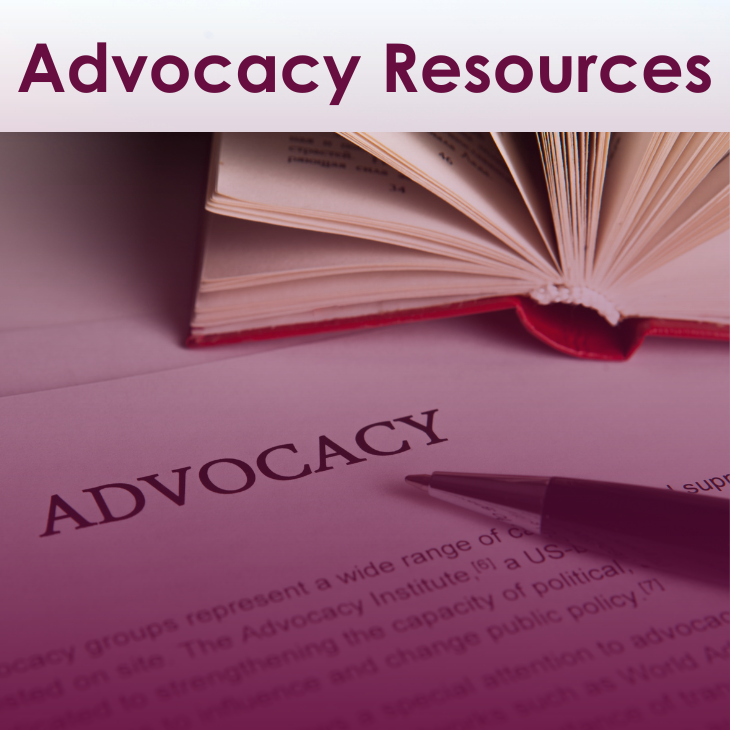
Frequently Asked Questions About the Psychological Component of Infertility
-- written by the ASRM Mental Health Professional Group
FAQ About the Psychological Component of Infertility
Infertility often creates one of the most distressing life crises that a couple has ever experienced together. The long term inability to conceive a child can evoke significant feelings of loss. Coping with the multitude of medical decisions and the uncertainties that infertility brings can create great emotional upheaval for most couples. If you find yourself feeling anxious, depressed, out of control, or isolated, you are not alone.
Everyone has feelings and emotional ups and downs as they pursue infertility treatment. Feeling overwhelmed at times is a perfectly normal response. However, if you experience any of the following symptoms over a prolonged period of time, you may benefit a great deal from working with a mental health professional:
- loss of interest in usual activities
- depression that doesn't lift
- strained interpersonal relationships (with partner, family, friends and/or colleagues)
- difficulty thinking of anything other than your infertility
- high levels of anxiety
- diminished ability to accomplish tasks
- difficulty with concentration
- change in your sleep patterns (difficulty falling asleep or staying asleep, early morning awakening, sleeping more than usual for you)
- change in your appetite or weight (increase or decrease)
- increased use of drugs or alcohol
- thoughts about death or suicide
- social isolation
- persistent feelings of pessimism, guilt, or worthlessness
- persistent feelings of bitterness or anger
In addition, there are certain points during infertility treatment when discussion with a mental health professional of various options and exploration of your feelings about these options can help facilitate clarification of your thinking and help with your decision making. For example, consultation with a mental health professional may be helpful to you and your partner if you are:
- at a treatment crossroad
- deciding between alternative treatment possibilities
- exploring other family building options
- considering third party assistance (gamete donation, surrogacy)
- having difficulty communicating or if you have different ideas about what direction to take
Mental health professionals with experience in infertility treatment can help a great deal. Their primary goal is to help individuals and couples learn how to cope with the physical and emotional changes associated with infertility, as well as with the medical treatments that can be painful and intrusive. For some, the focus may be on how to deal with a partner's response. For others, it may be on how to choose the right medical treatment or how to begin exploring other family building options. For still others, it may be on how to control stress, anxiety, or depression. By teaching patients problem- solving strategies in a supportive environment, mental health professionals help people work through their grief, fear, and other emotions so that they can find resolution of their infertility. A good therapist can help you sort out feelings, strengthen already present coping skills and develop new ones, and communicate with others more clearly. For many, the life crisis of infertility eventually proves to be an opportunity for life-enhancing personal growth.
Make sure you choose a mental health professional who is familiar with the emotional experience of infertility. It is recommended that they have:
- a graduate degree in a mental health profession
- a license to practice and/or state registration
- clinical training in the psychological aspects of infertility
- experience in the medical and psychological aspects of reproductive medicine
Interview more than one person. Ask them for their credentials as well as their experience with infertility issues and treatments. Ask if they are currently seeing other people with infertility.
For a referral to a competent mental health professional, you can click the "Find an Expert" button on the top right of this page. Also read over the Guidance On Qualifications For Fertility Counselors for more information on infertility counselors.
You could also ask your reproductive endocrinologist for names of people that he/she would recommend or contact a national support group such as RESOLVE.
Find a Mental Health Professional

FAQ
Resources For You

Advocacy Resources
ASRM has prepared resources to help you explain and advocate for reproductive rights and the continuation of in vitro fertilization and other fertility treatments.

Frequently Asked Questions
ASRM's Frequently Asked Questions (FAQ) provides answers to common questions about reproductive health.

Patient Journeys
ASRM has resources and publications to help you through each stage of your journey.

State and Territory Infertility Insurance Laws
One way that ASRM works to improve access to fertility care is by advocating for insurance coverage for reproductive medicine care. All patients should have access to the care they need.

Fact Sheets and Infographics
ASRM produces a series of fact sheets and booklets on various topics related to infertility, reproductive health, and family planning. The fact sheets and booklets are available in English, Spanish, and Chinese.

Reproductive Rights and You
The Dobbs decision has sparked a litany of changes in state laws across the nation, and more are expected. We need your help!

Reproductive Topics
Find all the resources on a specific topic compiled onto a single page.

SART Fertility Experts Podcast
An educational project of ASRM's affiliated society, the Society for Assisted Reproductive Technology (SART), this series is designed to provide up to date information about a variety of topics related to fertility testing and treatment such as IVF.

Patient Education Videos
ASRM and its affiliated society SART have made several videos to explain the sometimes difficult topics related to reproductive medicine.

Terms and Definitions
Find explanations for the meaning behind the doctor-speak you hear when trying to research reproductive medicine topics. ASRM has defined the most popular terms in easy to understand language.

Patient Stories
Read real-life stories from patients who have faced reproductive medicine challenges and come out stronger on the other side.

Fertility in the News
ASRM Press Releases and Bulletins are published by ASRM's Office of Public Affairs to inform the world about important happenings in reproductive medicine and at ASRM.
Infertility
Fertility and Sterility Publishes Editorial Exploring the Origins of “Restorative Reproductive Medicine” and Why Modern Fertility Care Must Remain Comprehensive
Restorative reproductive medicine overlooks IVF, male-factor care, and the need for full-spectrum fertility treatment using modern technologies.
ASRM PRIMED Cohort Members—Including Physicians, Providers, and Experts—Meet with Congressional Offices to Advocate for IVF Access & Educate About Realities of Restorative Reproductive Medicine
ASRM PRIMED cohort meets Congress to push for IVF access, clarify risks of restorative reproductive medicine, and defend science‑based fertility care.
ASRM Hosts Capitol Hill Briefing for Policymakers & Congressional Staff to Hear From Providers & Patients About Importance of IVF Access, Realities and Limitations of Restorative Reproductive Medicine
ASRM briefing united lawmakers, physicians & patients on IVF access, exposing RRM limits and urging policies to expand fertility care options.
SRS Warns Against Limiting Access to IVF Under the Guise of “Restorative” Care
SRS, an ASRM affiliate, advocates evidence-based reproductive surgery and full-spectrum fertility care for conditions like endometriosis, fibroids, and PCOS.
F&S Reports Publishes Editorial Piece on the Unscientific Nature of the Arguments for “Restorative Reproductive Medicine” and Why We Need to Understand Them
F&S Reports editorial critiques “Restorative Reproductive Medicine” as unscientific, faith-driven, and a threat to evidence-based IVF care and reproductive rights.
ASRM, Leading Medical Organizations Urge National Governors Association to Reject ‘Restorative Reproductive Medicine’ in Open Letter
Medical groups urge governors to reject Restorative Reproductive Medicine laws, defending evidence-based infertility care and IVF access.
ASRM Center for Policy and Leadership Releases Fact Sheet on Following the Science & An Evidence-Based, Science-Driven Response to Infertility
ASRM’s fact sheet outlines an evidence-based infertility care pathway, countering misleading RRM claims with science-backed medical best practices.
Follow the Science: An Evidence-Based, Science-Driven Response to Infertility
A science-based infertility evaluation and treatment guide, grounded in clinical best practices, counters ideologically driven alternatives like RRM. View the advocacy resourceASRM Ethics Committee Delivers New Opinion on Assisted Reproduction with Advancing Parental Age
ASRM Ethics Committee issues guidance on assisted reproduction and advanced parental age, addressing medical, ethical, and psychological considerations.
National Infertility Awareness Week
April 19-25, 2026, is National Infertility Awareness Week (NIAW)!
View the NIAW ToolkitSART Fertility Experts - Military Families and Fertility
Active-duty individuals in the military sometimes face unique circumstances when seeking fertility care. Learn more with a former military fertility physician. Listen to the EpisodeSART Fertility Experts - Q&A on Infertility
Infertility can create many questions for a patient. Listen to common questions and answers about infertility, egg freezing, and genetic testing. Listen to the EpisodeSART Fertility Experts - Environmental Impacts on Fertility
In this episode, the fertility experts discuss the impact of the environment, including air, climate, and chemical exposures on infertility. Listen to the EpisodeSART Fertility Experts - Recurrent Pregnancy Loss and Implantation Failure
"I can get pregnant, but I can't stay pregnant," is echoed by patients with recurrent pregnancy loss. Listen to the EpisodeSART Fertility Experts - Wellness and Fertility: Diet, Sleep and Exercise
Drs. Timothy Hickman and Rashmi Kudesia discuss the links between lifestyle and fertility. Listen to the Episodeİnfertilite İçin Tanısal Testler
Gebelik elde edememiş çiftlere, korunmasız şekilde 12 ay boyunca denemelerine rağmen gebe kalamamışlarsa fertilite testleri önerilmektedir. View the fact sheetSART Fertility Experts - Navigating IVF as a Couple
Mary Casey Jacob, PhD is interviewed by Dr. Daniel Grow, and together they explore the emotional and practical support that couples need. Listen to the EpisodeMale Fertility Journey
About 20% of infertility cases are due to a male factor alone. Another 30% involves both male and female factors.
View the Patient JourneyFemale Fertility Journey
If you've been trying to get pregnant for more than a year, you may have infertility. Infertility is a disease of the reproductive system that impairs one of the body's most basic functions: the conception of children.
View the Patient JourneyStress and infertility
It is not clear how exactly stress impacts fertility. Read the Fact SheetHyperprolactinemia (High Prolactin Levels)
Prolactin is a hormone produced by your pituitary gland which sits at the bottom of the brain. Read the fact sheetOptimizing Natural Fertility
Before attempting pregnancy, a woman should make sure she is healthy enough for pregnancy by adopting a healthier lifestyle and taking prenatal vitamins. If she has a medical or genetic condition or risk of one, she should seek advice from a medical professional before conceiving (becoming pregnant) View the fact sheetOptimizing Male Fertility
About 20% of infertility cases are due to a male factor alone. Another 30% involves both male and female factors. View the fact sheetDefining Infertility
Infertility is “the inability to conceive after 12 months of unprotected intercourse.” View the Fact SheetFertility Rights and Responsibilities
Can a fertility program or clinic deny treatment to patient(s) if there is concern about the ability to care for the child(ren)? Yes. Fertility programs can withhold services if there are signs that patients will not be able to care for child(ren). View this Fact SheetMale Fertility Evaluation: What do I need to know?
Infertility is the inability to achieve pregnancy after one year of unprotected sex. View the fact sheetSmoking and infertility
Most people understand that smoking increases the risk for heart, vascular, and lung disease. View the fact sheetWhat are fibroids?
Uterine fibroids (also called myomas or leiomyomas) are benign (noncancerous) tumors of muscle tissue found in the uterus. View the fact sheetInfertility Counseling and Support: When and Where to Find It
Infertility is a medical condition that touches all aspects of your life. View the fact sheetWhat is In Vitro Maturation (IVM)?
In vitro maturation (IVM) is when a woman’s eggs are collected and matured outside the body. This is done as part of an in vitro fertilization (IVF) procedure. View the fact sheetİn Vitro Maturasyon (IVM)
İn vitro maturasyon (IVM), yumurtaların vücut dışında toplanıp olgunlaştırılması işlemidi. View the fact sheetKISIRLIĞIN (İNFERTİLİTENİN) TANIMLANMASI
Kısırlık “12 aylık korunmasız ilişkiye karşın gebe kalamamadır. View the fact sheetSigara ve Kısırlık
Çoğu insan, sigara içmenin kalp, damar ve akciğer hastalıkları riskini artırdığını bilir. View the fact sheetSART Fertility Experts - Endometriosis
Endometriosis is a condition that can affect many facets of a person’s life, from pelvic pain to struggles with infertility. Listen to the EpisodeSART Fertility Experts - Recurrent Pregnancy Loss
Candace discusses her experience with infertility, IVF, multiple pregnancy losses and ultimately a successful delivery with Dr. Julia Woodward.Listen to the Episode


